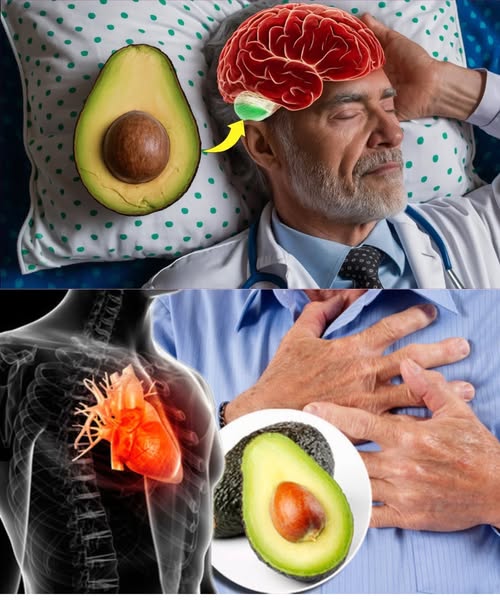Introduction:

Pancreatic cancer is often called a “silent killer” for a terrifying reason — it shows little to no symptoms in its early stages. By the time most people realize something is wrong, the disease has progressed to an advanced stage, making treatment more complex and survival rates significantly lower.
In this blog post, we reveal the 8 most shocking symptoms of pancreatic cancer that you must recognize. These warning signs might seem harmless or unrelated at first — but ignoring them can be deadly. Our goal is to empower you with knowledge, raise early awareness, and potentially help you or a loved one act before it’s too late.
With global awareness of pancreatic cancer still relatively low, this article is your essential guide to understanding its symptoms, answering frequently asked questions, and highlighting the life-saving importance of early detection.
Why You Must Pay Attention: The Rising Threat of Pancreatic Cancer
Pancreatic cancer is the seventh leading cause of cancer-related deaths worldwide, and it is projected to become the second deadliest cancer by 2030. According to the American Cancer Society:
- Nearly 66,000 new cases of pancreatic cancer are expected in 2025 in the United States alone.
- The 5-year survival rate is only 12%, due largely to late diagnosis.
- Over 70% of patients are diagnosed after the cancer has already spread.
Early detection can significantly improve outcomes — and knowing the warning signs is the first crucial step.
8 Symptoms of Pancreatic Cancer That Will Shock You
Here are eight critical symptoms that could point to pancreatic cancer. While some may seem subtle or common, in combination or persistence, they warrant immediate medical attention.
1. Unexplained Weight Loss
Rapid, unintentional weight loss is a red flag. While many people welcome weight loss, sudden and unplanned loss without a change in diet or exercise should raise alarm.
Why it happens:
The pancreas plays a vital role in digestion. Cancer interferes with its ability to produce enzymes, leading to poor absorption of nutrients and muscle wasting.
Warning Sign: Losing more than 10% of your body weight without trying.
2. Jaundice (Yellowing of the Skin and Eyes)
Even if you’ve never had liver issues, yellowing of the skin or eyes may signal a blockage in the bile duct caused by a tumor in the pancreas — particularly in the head of the pancreas.
Associated symptoms:
- Dark-colored urine
- Light or clay-colored stool
- Itchy skin
Fast Fact: Jaundice is often one of the first visible signs of pancreatic cancer.
3. Persistent Abdominal or Back Pain
Pancreatic tumors can grow and press against surrounding organs or nerves, causing dull, persistent pain in the upper abdomen or mid-back.
Key traits:
- Pain worsens when lying down
- Pain improves slightly when leaning forward
Don’t ignore chronic or progressive pain in your abdomen or back, especially if over-the-counter painkillers don’t help.
4. Sudden-Onset Diabetes or Blood Sugar Fluctuations
The pancreas regulates blood sugar. Tumors can interfere with insulin production, leading to new or worsening diabetes, even in individuals with no risk factors.
What to look for:
- Increased thirst or urination
- Fatigue
- Blurred vision
- Unexpected changes in blood sugar levels
Important: If you’re suddenly diagnosed with diabetes after age 50, especially with weight loss or other symptoms, speak with your doctor about screening for pancreatic abnormalities.
5. Fatigue That Doesn’t Go Away
Everyone feels tired occasionally. But if you’re constantly fatigued — to the point that it affects your work, sleep, or daily life — it could be more than just stress or aging.
Causes:
- Tumor-related inflammation
- Poor nutrient absorption
- Anemia due to cancer
Chronic fatigue is one of the most overlooked symptoms of pancreatic cancer.
6. Digestive Issues and Bloating
As the pancreas becomes impaired, it cannot effectively aid digestion, resulting in symptoms like:
- Nausea or vomiting
- Gas and bloating
- Early satiety (feeling full quickly)
- Greasy or floating stools (steatorrhea)
Action Step: Frequent indigestion or unexplained bloating should not be ignored — especially if it persists.
7. Loss of Appetite
Sudden loss of appetite may seem like a diet win, but if it’s combined with other symptoms such as nausea, fatigue, or abdominal discomfort, it may be linked to pancreatic cancer.
Why it happens:
Tumors can slow or stop the digestive process, making eating uncomfortable or unappealing.
If your eating habits change drastically without effort or explanation, it’s time to seek medical advice.
8. Depression or Mood Changes
Strangely, mood disturbances can be among the earliest signs of pancreatic cancer, even before physical symptoms appear.
What to watch for:
- New or worsening depression or anxiety
- A sense of doom or loss of interest in life
Science shows that pancreatic tumors may produce chemicals that affect brain function and emotional regulation.
FAQs About Pancreatic Cancer Symptoms
Can pancreatic cancer be detected early?
Early detection is difficult due to lack of symptoms. However, high-risk individuals (family history, genetic mutations, chronic pancreatitis) should undergo regular screening with imaging or blood tests.
How is pancreatic cancer diagnosed?
Diagnosis often includes:
- CT or MRI scans
- Endoscopic ultrasound (EUS)
- Biopsy
- Blood tests (including CA 19-9 tumor markers)
What causes pancreatic cancer?
While the exact causes are unclear, risk factors include:
- Smoking
- Obesity
- Family history
- Chronic pancreatitis
- Age (more common over 60)
Is there a cure for pancreatic cancer?
If detected early, surgery may be possible, and in combination with chemotherapy, some patients can achieve long-term remission. However, for many, treatment is palliative.
The Urgency of Early Detection: Don’t Wait for Symptoms to Get Worse
Many patients delay medical evaluation, thinking their symptoms are “normal” or temporary. Unfortunately, this delay can cost lives. Pancreatic cancer’s aggressiveness makes time a luxury no one can afford.
Takeaway: If you or someone you love has two or more of the symptoms listed above — especially if they persist — demand further investigation.
How to Protect Yourself and Stay Proactive
Here are 5 actionable steps you can take:
- Know your family history – Discuss it with your doctor.
- Don’t ignore digestive or metabolic changes – even if they seem small.
- Get regular checkups – especially after age 50 or if you’re high risk.
- Maintain a healthy lifestyle – Avoid smoking, eat antioxidant-rich foods, exercise regularly.
- Be an advocate for your own health – Push for tests if something feels off.
Conclusion: Don’t Let Pancreatic Cancer Catch You Off Guard
Pancreatic cancer is stealthy, aggressive, and deadly — but not unbeatable. Recognizing the early warning signs can make all the difference between late-stage detection and a fighting chance.
By being vigilant, informed, and proactive, you can protect yourself and your loved ones from this devastating disease.
💡 Remember: If you notice unexplained weight loss, fatigue, jaundice, new diabetes, or any combination of the symptoms above — act fast. Speak with a healthcare provider. Insist on getting the answers you need.
Your life could depend on it.


